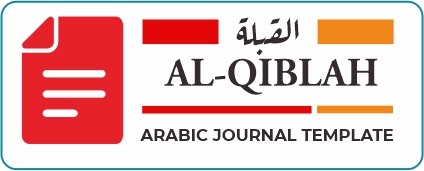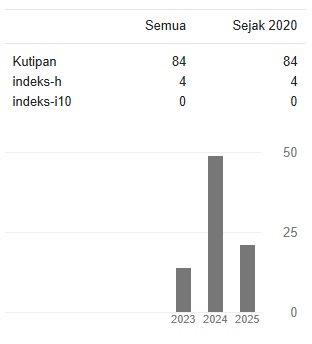Batasan Waktu Pelaksanaan Salat Jenazah di Area Pemakaman dalam Perspektif Fikih Ibadah
Time Limit for Performing Funeral Prayers in Funeral Areas from the Perspective of the Jurisprudence of Worship
DOI:
https://doi.org/10.36701/qiblah.v3i6.1835Keywords:
Time Limit, Funeral Prayers, Funerals, Jurisprudence of WorshipAbstract
This study aims to explore and understand scholars' views on the law and time limits for performing funeral prayers at burial sites within the perspective of fiqh (Islamic jurisprudence) on worship practices. This qualitative descriptive research (non-statistical), using normative and historical approaches. The findings of the study are as follows. First, scholars differ in their opinions regarding the ruling on funeral prayers at the burial site for those who missed the initial prayer. The first opinion, held by the Hanafi school, permits it with conditions: the person must be a guardian of the deceased and the initial funeral prayer must not have been led by another guardian; the person must have the right to perform the prayer for the deceased. The second opinion, from the Maliki school, considers it disliked (makruh) to repeat the funeral prayer if it was already conducted collectively, but it is permitted if only one person prayed earlier, provided it is done in congregation. The third opinion, from the Shafi’i and Hanbali schools, allows it unconditionally. The researcher tends to favor the third opinion. Second, there are five opinions regarding the time limit for funeral prayers at the burial site: (1) limited to three days, which is a view held by some Hanafi scholars; (2) up to one month, supported by some scholars from the Hanbali, Maliki, and Shafi’i schools; (3) as long as the body remains intact, a view held by some Hanafi, Maliki, and Shafi’i scholars; (4) allowed indefinitely without restriction, a position taken by some Shafi’i scholars and Ibn 'Aqil al-Hanbali; and (5) allowed indefinitely with the condition that the person met the requirements to pray at the time of the deceased’s passing, which is a Shafi’i view. The researcher favors the fifth opinion. The implications of this study are intended to serve as a resource for students of knowledge and to provide information for the public seeking insight into this topic.
Downloads
References
al-Albāni, Muḥammad Nāṣir al-Dīn. Aḥkām Al-Janāiz Wa Bida’uhā. 1st ed. Riyāḍ: Maktabah al-Ma’ārif, 1992.
al-Aṣbaḥī, Malik ibn Anas. Al-Mudawwanah. 1st ed. Dār al-Kutub al-‘Ilmiah, 1994.
Al-Bagdādi, Alī ibn Muhammad. Al-Ḥawī Al-Kabīr Fī Fiqh Mazhab Al-Imām Al-Syāfi’ī, Juz 3. 3rd ed. Bairūt: Dar al-Kutub al-‘Ilmiyah, 1999.
Al-Buhūtī, Mansūr ibn Yūnus. Kasyāf Al-Iqnā’ ‘an Al-Iqnā’, Juz 4. Edited by Kerajaan Arab Saudi. 1st ed., 2000.
al-Bukhārī, Abū Abdillāh Muḥammad ibn Ismā’īl ibn Ibrāhīm ibn al-Mugīrah. Ṣahīḥ Al-Bukhārī. Cet. I. Bairūt: Dār Ṭūq al-Najāh, 2001.
Al-Ḥaṭṭāb, Muḥammad ibn Muḥammad. Mawāhib Al-Jalīl Fī Syarh Mukhtaṣar Khalīl, Juz 2. 3rd ed. Dār al-Fikr, 1992.
al-Iskandarī, Muḥammad ibn ‘Abd al-Waḥīd. Fath Al-Qadīr ‘alā Al-Hidāyah, Juz 2. 1st ed. Libanon: Dār al-Fikr, 1970.
Al-Kasānī, Abū Bakar ibn Mas’ūd. Badai’ Al-Ṣanai’ Fi Tartibi Al-Syarai’. 1st ed. Miṣr: Maktba’ah Syirkah al-Maṭbu’at al-‘Ilmiyah, 1327.
Al-Naisābūrī, Muslim bin al-Ḥajjāj al-Qusyairī. Ṣaḥīḥ Muslim. Dār al-Kutub al-‘Arabiyyah al-Kubrā, 1955.
Al-Nawawī, Abū Zakariyyā Muḥyī al-Dīn Yaḥyā ibn Syaraf. Al-Majmū’ Syarḥ Al-Muhażżab. Dār al-Fikr, 2010.
Al-Nawawī, Yahya bin Syaraf. Ṣaḥīḥ Muslim Bi Syarḥ Al-Nawawī. Vol. 5. Bairūt: Dār al-Kutub al-‘Ilmiyyah, 1995.
al-Qurṭubī, Muhammad ibn Aḥmad. Al-Tażkirah Biahwāl Al-Mautā Wa Umūr Al-Ākhirah. 1st ed. Riyāḍ: Dā ̅r al-Manhāj, 1425.
al-Syirbīnī, Muḥammad ibn Muḥammad al-Khaṭīb. Mugni Al-Muhtāj Ilā Ma’rifah Ma’ānī Alfāż Al-Minhāj. 1st ed. Dār al-Kutub al-‘Ilmiah, 1994.
al-Tamimi, Muhammad ibn Ḥibbān ibn Aḥmad. Ṣaḥiḥ Ibnu Ḥibban, Juz 6. 1st ed. Bairūt: Dar Ibn Ḥazm, 2012.
Arikunto, Suharsimi. Prosedur Penelitian: Suatu Pendekatan Praktik. XIV. Jakarta: Rineka Cipta, 2010.
Bisri, Cik Hasan. Model Penelitian Kitab Fikih. 1st ed. Bogor: Kencana, 2003.
Darāquṭnī, Al-, and Alī ibn ‘Umar. Sunan Al- Dāraquṭnī, Juz 2. 1st ed. Bairūt: Muassasah al-Risālah, 2004.
Ilhamuddin. “Tinjauan Hukum Islam Terhadap Pelaksanaan Salat Gaib Terhadap Jenazah Yang Telah Meninggal Selama Sebulan.” Makassar, 2019.
Kementerian Agama, R I. Al-Quran Dan Terjemahnya. Jakarta: PT. Hati Emas, 2014.
Kementerian Agama RI. “Al-Qur’an Dan Terjemahan.” Bandung: CV Mikraj Khazanah Ilmu, 2013.
Mālik ibn, Anas. Al-Muwaṭṭa‘. Bairūt: Dār Iḥyā’ al-Turāṡ al-‘Arabī, n.d.
Moleong, Lexy J. Metodologi Penelitian Kualitatif. PT Remaja Rosdakarya, 2021.
Nadhiran, Hedhri, and Muhamad Takrip. “Perbedaan Hadis Tempat Pelaksanaan Salat Jenazah (Analisis Tanawwu’fil Ibadah).” In Proceeding International Conference on Tradition and Religious Studies, 1:174–83, 2022.
Qudama, Ibn. “Al-Mugni.” Daru-l-Manar, Cairo. Thrd Edition, 1973.
Suryabrata, Sumadi. Metodologi Penelitian. Jakarta: Raja Grafido Persada, 2006.
———. “Metodologi Penelitian Cetakan Ke 25.” Jakarta: PT Rajagrafindo Persada, 2014.
Suteki, Galang Taufani. “Metodologi Penelitian Hukum (Filsafat, Teori, Dan Praktik), Cetakan Ke-3.” Depok: PT Raja Grafindo Persada, 2020.
Yansah, Febri. “Shalat Di Atas Kuburan Menurut Mazhab Maliki Dan Mazhab Syafi’i (Studi Perbandingan),” 2022.



 FOCUS AND SCOPE
FOCUS AND SCOPE EDITORIAL TEAM
EDITORIAL TEAM












